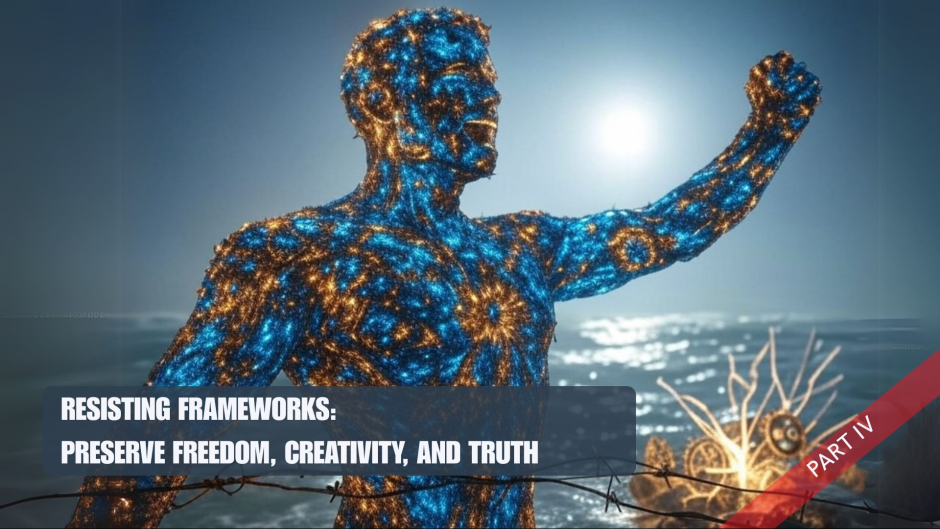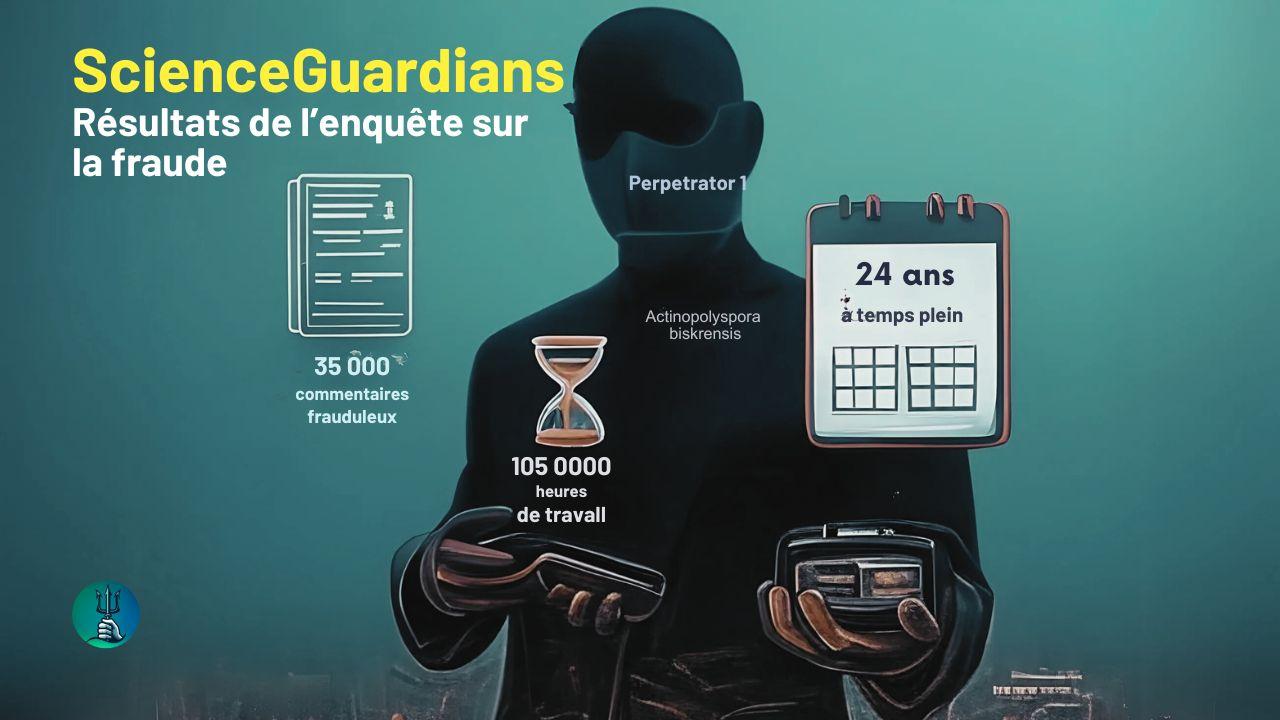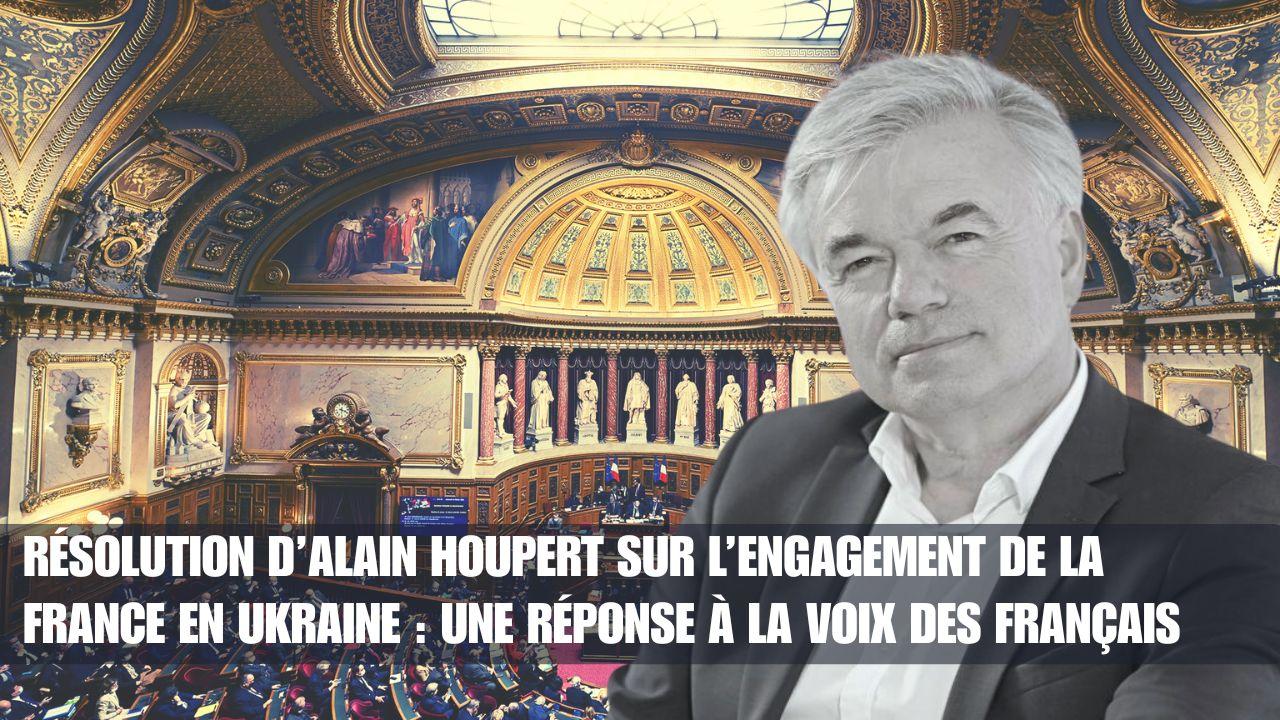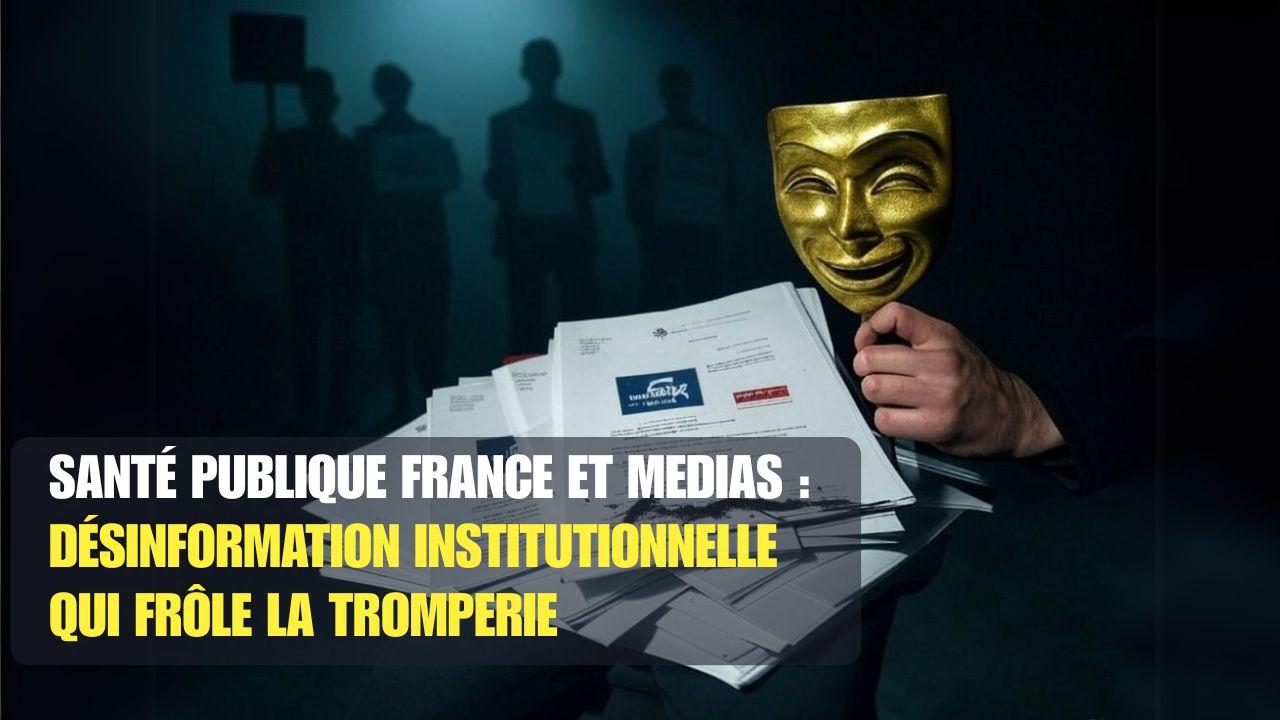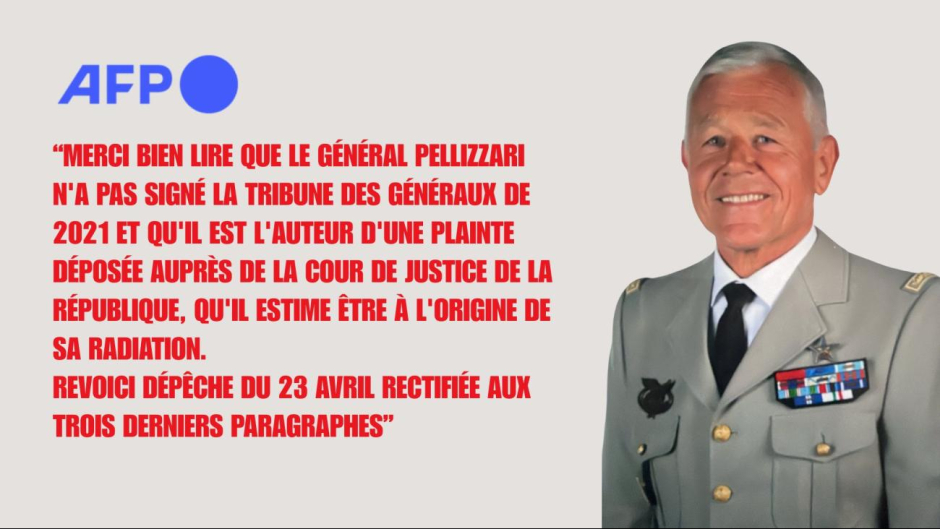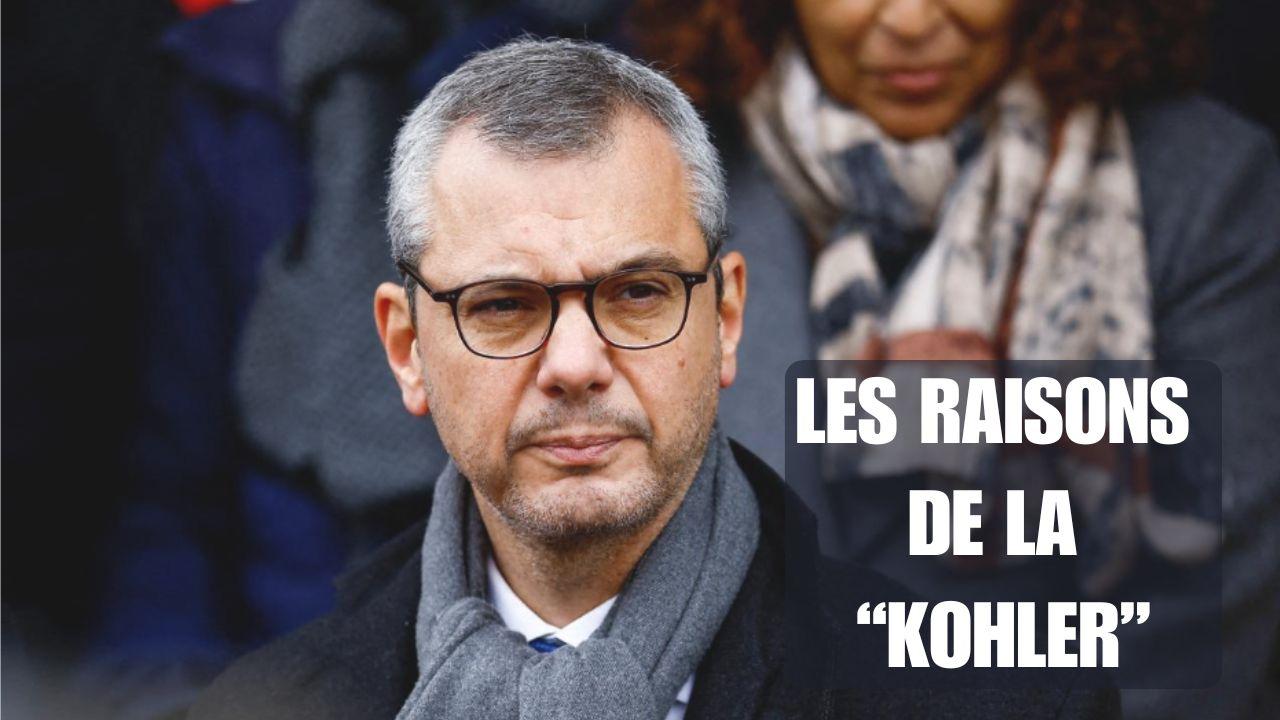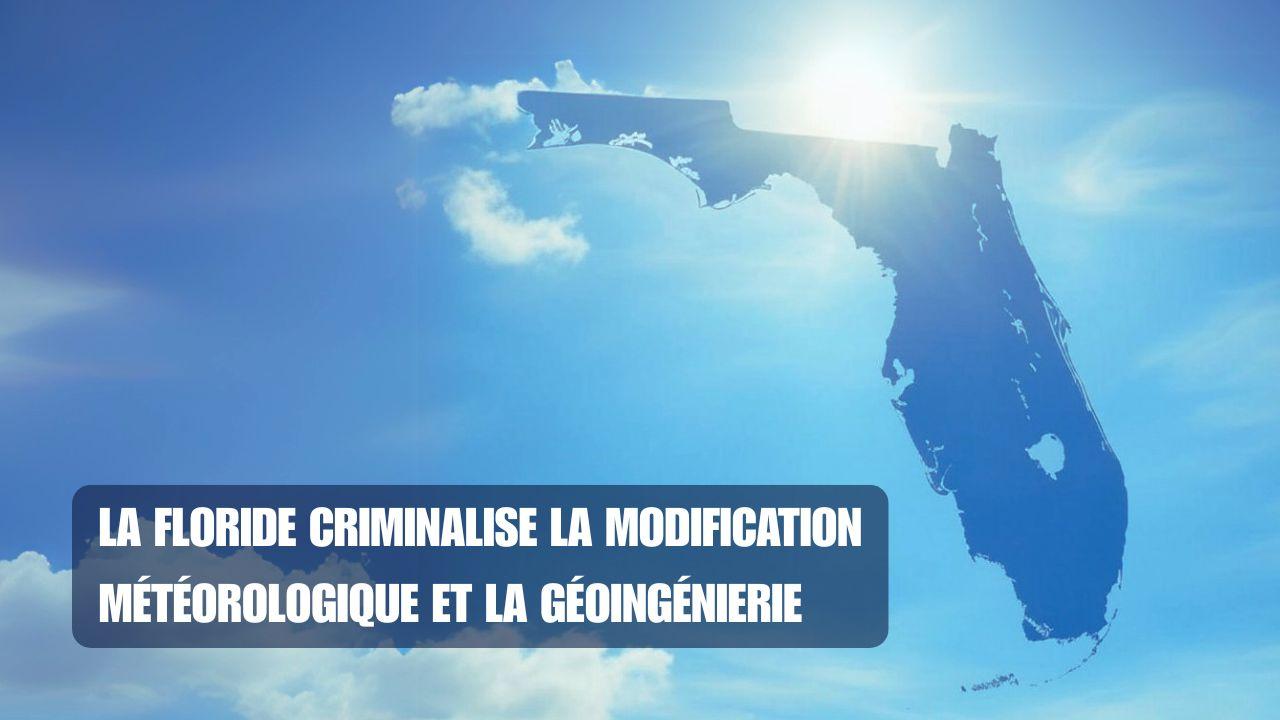Xavier Azalbert, France-Soir
Resisting Frameworks: Preserving Freedom, Creativity, and Truth (Part IV)
Abstract: In a world where normative frameworks—algorithms, institutions, media—weave barbed wire to capture the truth and stifle freedom, a human wave is rising. Critical thinking, an essential weapon, challenges the narratives imposed by verification and questioning, bursting information bubbles.In the United States, Jay Bhattacharya at the NIH, the DOJ, and RFK Jr. are fighting to free science from pharmaceutical clutches, while Science Guardians protects dissidents from harassment orchestrated by tools like PubPeer and DISARM.
In France, France-Soir, Alain Houpert, and citizens denounce institutional censorship, from political opacity to biased health ratings. Florida, by criminalizing geoengineering, shows that institutions can serve the people. Finally, nonlinear creativity, celebrated as magnificent chaos, becomes a force of resistance, breaking through boundaries to unleash a kaleidoscope of truths.
The call is clear: verify, question, create, resist – information belongs to the people, not the powerful.

Article
This article is the fourth part of a series dedicated to frameworks, these methodological frameworks that structure our societies, our thoughts and our decisions. In the first article, we traced their history. The second explored the tension between human uniqueness – its disorder, its multidisciplinarity, its "madness" – and the "normatization" imposed by these frameworks, which threaten our creativity and our non-linearity. The third part looked at the modern uses of frameworks in information management that redefine our relationship to truth and decision-making. This last part discusses how to resist frameworks while preserving freedom, creativity and truth from drifts and captures with current examples.
The wave against barbed wire
Imagine an ocean of information, where waves of data collide, some clear, others murky, carrying truths and lies in a single tumult. In this chaos, invisible frameworks—algorithms, institutions, scientific journals—weave nets to capture minds, imposing uniform narratives that stifle plurality. These barbed wires, whether they take the form of institutional disinformation campaigns, media censorship, or online harassment, seek to standardize thought, muzzle dissent, and extinguish the flame of human creativity. Yet a wave is rising: individuals, communities, and institutions are daring to challenge these frameworks, breaking the chains to restore information's emancipatory power. From Jay Bhattacharya reforming science at the NIH to Florida criminalizing geoengineering, to legal and citizen battles in France, a global movement is emerging, driven by critical thinking, non-linearity, and a stubborn quest for truth.
Here we delve into the art of resistance. How can we counter scientific capture, harassment, censorship, and institutional disinformation? How can we preserve human creativity in the face of systems that seek to linearize it? Through recent examples, from the United States to France, we will chart a path to transform information into a kaleidoscope of truths, where each shard reflects the diversity of human perspectives.
For the human, this magnificent chaos, is a wave capable of submerging everything, if only it dares to break.
Critical thinking: a bulwark against imposed narratives
In a world where narratives are imposed like decrees, critical thinking is a shield. Institutions, algorithms, and dominant media shape prefabricated truths, exploiting our reflexes to align us. But this shield can be forged, sharpened, and brandished.
To resist is to refuse to bend to these pressures, by arming oneself with facts, questions, and an insatiable curiosity.

Verification is the first weapon. Rather than swallowing institutional reports, it's about going back to the sources: raw data, original studies, public contracts. When Robert F. Kennedy Jr. demands clinical trials with placebo groups for vaccines, he embodies this approach : dissecting the numbers, not the conclusions of manufacturers. In France, citizens have scrutinized the reports of Public Health France, revealing inconsistencies on vaccine side effects, or analyzed a poll showing that 83% of French people feel ignored by their leaders. These efforts show that truth is conquered through analysis.
Questioning is just as crucial. A Socratic stance— doubting, questioning, challenging —pierces consensus. When an institution asserts that a policy is "the only solution," ask: On what basis? Who benefits? If a narrative is labeled "disinformation," demand specific evidence : Which claim is false? By remaining calm and factual, you turn the trap back on the accuser, exposing their flaws.
Algorithms, which amplify standardized narratives, can be circumvented. Digital tools —decentralized platforms like Mastodon, anti-censorship browsers like Tor—provide access to alternative perspectives. Sharing critical analyses via parallel channels like Telegram, away from the GAFAM filters, is an effective tactic. These practices, accessible to all, break information bubbles, strengthening intellectual autonomy.
This individual resistance is a necessity. Every critical spirit that arises weakens the imposed narratives, like a wave that erodes a wall.
By verifying, questioning, and bypassing filters, we regain control of information, transforming a tool of capture into a lever of emancipation.
Restoring Scientific Integrity: The American Resistance
Science, the pillar of truth, has become a battlefield. Scientific journals, influenced by pharmaceutical and technological interests, filter research to align conclusions with agendas. Studies are retracted without clear justification, dissenting researchers are marginalized, and standardized narratives are imposed as dogma. In the United States, a resistance is organizing, led by figures and institutions that refuse to bend. From Jay Bhattacharya to Robert F. Kennedy Jr., including the Department of Justice investigation, a wind of reform is blowing, restoring science's rigor and freedom.

- Jay Bhattacharya, nominated to lead the NIH in 2025, embodies this struggle. An early dissident, he challenged the narratives about lockdowns with the Great Barrington Declaration, advocating targeted approaches. Harassed and censored, he stood firm, relying on data. His mission at the NIH is clear: restore academic freedom, open debate, and counter scientific censorship. By reforming funding and publication policies, Bhattacharya aims to break the capture of institutions by corporate interests, allowing dissenting voices to be heard.
- The Department of Justice (DOJ) is stepping up this fight. In 2025, it is investigating scientific journals, targeting publication bias and conflicts of interest. Studies reveal that critical articles, particularly on vaccines, are rejected or retracted under pressure. This investigation imposes transparency standards: publication of raw data, disclosure of funding, independent audits. It is a slap in the face to the normative frameworks that have transformed science into a tool of power.

- Robert F. Kennedy Jr. completes this picture. By advocating for rigorous clinical trials with placebo groups, he challenges the pharmaceutical industry, accused of manipulating results. His proposal forces authorities to review the standards for vaccine testing. These initiatives—Bhattacharya, DOJ, RFK Jr.—value dissent, rejecting narratives that stifle research. They chart a path for a science free from barbed wire, where truth is born from debate, not imposed consensus.
- American resistance doesn't stop there. In 2025, the suspension of activities in a high-security laboratory reveals how technocratic frameworks were able to prevent contradictory debate. This decision, imposed by Jay Bhattacharya, illustrates how science captured by political or economic imperatives must be completely liberated and, above all, that transparency must be made available to citizens.
- At the same time, an executive order signed by Donald Trump on May 6, 2025, prohibits federal funding for gain-of-function research, an expected but controversial measure that responds to legitimate fears about the risks of bioterrorism. While this decree can be seen as a restriction, it also highlights the excesses of the opacity of certain scientific frameworks, where risky research is conducted without public debate.
- Finally, a recent study, marginalized by institutions, shows a paradoxical increase in deaths linked to COVID-19 despite vaccination, a scandal that underscores the urgency of freeing science from the normative narratives held captive by opaque financial interests. These initiatives and revelations – from Bhattacharya to the DOJ, via RFK Jr., Trump, and independent researchers – show that dissent is a vital force for restoring scientific integrity, breaking the chains of oppressive frameworks.
Countering Harassment and Fraud: Science Guardians vs PubPeer
Dissidents face an insidious enemy: harassment. Coordinated networks target those who challenge established narratives, using insults, threats, and accusations of fraud to silence them. These campaigns, amplified by platforms like PubPeer, often align with frameworks like DISARM, transforming integrity tools into weapons of disinformation. But resisters, like GoodSense.org or Science Guardians, are fighting back, exposing academic fraud and protecting victims, forging an ethical bulwark against these attacks.
Science Guardians emerges as a force for truth. In 2025, they expose a major academic fraud, in which researchers are harassed and social media is exploited to support a pharmaceutical narrative. Their method—rigorous documentation, confidentiality, and victim support—embodies ethical resistance. By protecting harassed scientists, they break the cycle of fear, allowing critical voices to be raised.

PubPeer, designed to promote integrity through post-publication commentary, has become a hunting ground. Anonymous, often malicious, comments target researchers who deviate from the dominant narratives. These campaigns, in synergy with DISARM, label dissenters as "fraudsters" to discredit them. This information pollution obscures the truth, transforming a space for debate into a virtual courtroom.
This harassment has a human cost. Targeted scientists, like those supported by BonSens.org or Science Guardians, experience stress, isolation, and sometimes abandon their research. Independent media teams, like France-Soir, face similar pressures, threatened by the loss of resources. Resilience requires support: solidarity networks and safe spaces to express oneself. These strategies, by strengthening resilience, transform victims into fighters.
The strategy is clear: document, expose, resist. Archiving attacks provides evidence for legal action. Exposing harassers' biases, such as their industrial ties, undermines their credibility. Creating solidarity networks protects victims.
This resistance turns harassment into fuel for dissent, breaking the chains of fear.
Challenging institutional censorship: the fight in France
In France, institutional censorship is striking hard, aiming to silence critical voices through disinformation, unfair competition, and political opacity. This barbed wire, woven by dominant institutions and media, seeks to impose a single truth. Yet, resistance fighters—media, citizens, parliamentarians—are breaking this distorting mirror, revealing the flaws in standardized narratives.
The France-Soir licensing case is a textbook case. In August 2024, the Ministry of Culture withdrew its online press license, citing "ethical breaches" and "danger to the public interest. "France-Soir, which, among other things, denounced the opacity of vaccine contracts and the instrumentalization of science in early treatments, saw this as political censorship. By going all the way to the Council of State, the media outlet is fighting back, transforming an attack into a fight for freedom of expression, and yet it hasn't been enough so far. But it has brought to light numerous dysfunctions at the Ministry of Culture, lies, and failures by the Directorate General of Health. This legal battle illustrates a key strategy: using the law to challenge institutions. And being patient.
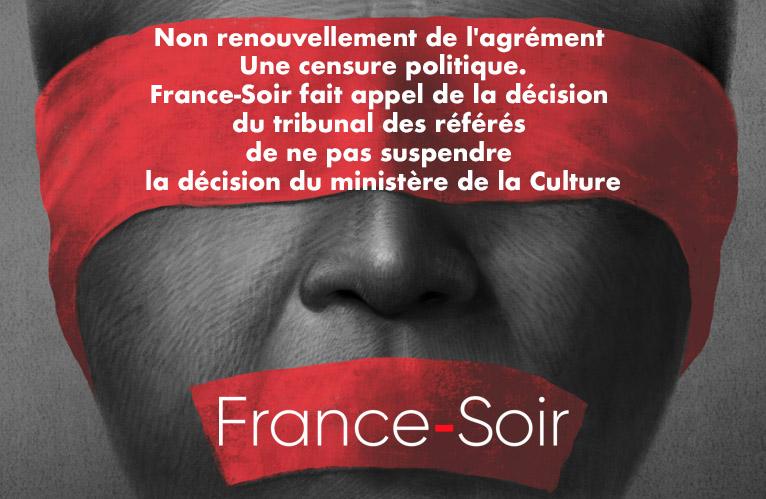
Senator Alain Houpert's resolution, tabled on April 22, 2025, embodies another form of resistance. Faced with a crisis of confidence— 83% of French people believe their leaders ignore their will, according to an MIS Group poll—Houpert proposes increased parliamentary oversight of military and financial commitments in Ukraine. Inspired by a citizen resolution with 21,500 signatories, including 68 former military personnel, this initiative demands respect for Articles 35 and 53 of the Constitution, denouncing unilateral decisions by the executive. By amplifying the voice of the people, Houpert challenges technocracy, showing that sovereignty belongs to citizens, not elites.
The denigration by Le Monde, calling France-Soir a "disinformation tool" and a "conspiracy blog" in August 2024, is part of unfair competition aimed at marginalizing critical voices. France-Soir responds by exposing Le Monde's biases and calling for citizen support, transforming the attack into a springboard for plurality.
Institutional disinformation reaches its peak with the memo from the Directorate General of Health (DGS), signed by Grégory Emery. This memo, justifying health policies, cites a retracted study, a scandal revealed by independent researchers. The response? Expose these flaws publicly and demand transparency from sources.
Institutional disinformation doesn't stop there. In April 2025, Health Minister Yannick Neuder launched a fight against disinformation while, at the same time, Santé Publique France misinformed the public about vaccination and thus came close to deception. By downplaying data that contradicted the official narrative (here using old and incomplete data from 2023), he illustrates how institutional frameworks manipulate information to control minds, smothering the truth under a veneer of authority.
Added to this is another form of media censorship: AFP, in a 2025 dispatch, disseminated false information about General Paul Pellizzari, wrongly claiming he had been discharged from the army. It took 15 rights of reply and a formal notice from France-Soir for AFP to correct its dispatch, an emblematic case of the use of media frameworks, such as DISARM, to discredit dissenting voices. With AFP disarmed in its erroneous dispatch, the media outlets that reprinted this dispatch without checking are contractually obliged to modify their own article. A chain reaction.
Finally, political opacity reached its peak with Alexis Kohler, former secretary general of the Élysée Palace, who refused in April 2025 to appear before a commission of inquiry into the Nestlé Waters affair. A complaint against unknown persons for witness tampering was filed, denouncing variable geometry decisions and the impunity of technocratic elites who believe themselves above the law. These battles, against the AFP, against Neuder, and against Kohler, demonstrate that resistance, whether media, citizen, or legal, is essential to breaking through the barbed wire of institutional censorship.
Citizens play a crucial role. Petitions against the censorship of France-Soir, protests for health transparency, and collaborative investigations into the DGS's reports show that the public can challenge institutions. These movements, often born on social media, transform anger into action, demanding pluralistic information.
These actions – judicial, political, collective – break official narratives, reminding us that truth is born from the courage to challenge.
Reforming Institutions: The Florida Way
Institutions, often complicit in normative frameworks, can become beacons of resistance. When they embrace transparency and plurality, they break the chains of normatization. Florida, with its anti-geoengineering law, embodies this possibility, showing that courageous reforms can protect the public interest.
In 2025, Florida criminalized illegal weather modification, responding to concerns about environmental impacts. This law, championed by legislators who listened to citizens, challenged the technocratic frameworks that obscured these practices. It sent a message: the truth must be accessible, not buried beneath standardized narratives.
This model can be expanded. Transparency —publishing raw data—dismantles opaque narratives. Regulating tech giants limits censorship. Education, inspired by nonlinear pedagogies, cultivates critical thinking. Bhattacharya's NIH reforms, focused on academic freedom, point the way: an institution can once again become a space for debate.
These changes, although difficult, transform institutions into allies of truth, freeing information from its chains.
Creativity as Resistance: The Power of Nonlinearity
In the face of normative frameworks that impose linear patterns, creativity is an untamed wave. Nonlinearity—this ability to zigzag between disciplines, to defy convention—is the essence of being human. By cultivating it, we resist apathy and a loss of curiosity. It is in this magnificent chaos that truth finds its brilliance.
Interdisciplinarity breaks down silos. Scientists collaborating with artists to denounce geoengineering show that truth is born at the intersection of perspectives. Creative spaces—scientific collectives, collaborative platforms— are laboratories of dissent, where atypical ideas thrive. They contrast with algorithms, incapable of reproducing human intuition.
By privileging this intuition, we resist the automation of thought.

Creativity is an act of courage. Every project that challenges norms—an article exposing censorship, a work denouncing misinformation—is a wave that erodes oppressive frameworks.
By cultivating this strength, we are reinventing a world where information, liberated, becomes a reflection of our diversity.
A Kaleidoscope of Truths
Normative frameworks weave barbed wire to capture the truth, imposing narratives that stifle plurality. But the human tide, carried by critical thinking, dissent, and creativity, can overwhelm all. In the United States, Jay Bhattacharya, the DOJ, and RFK Jr. are breaking scientific capture. Science Guardians and the PubPeer critique are challenging harassment. In France, France-Soir's fight, Alain Houpert's resolution, and the denunciation of the DGS's biased ratings are exposing the flaws of the powerful. Florida, by criminalizing geoengineering, shows that institutions can serve the people. And everywhere, human nonlinearity is illuminating the way.
The urgency is here: without resistance, these executives will freeze the truth in a rigid matrix. But every action counts. Verify a source, support an independent media outlet, question a narrative, create a space for debate, defend a dissident.
Together, these acts form a kaleidoscope of truths, where each shard reflects the diversity of humanity.
Information is not a decree: it is a power that belongs to the people. Let us be the wave that liberates them.
